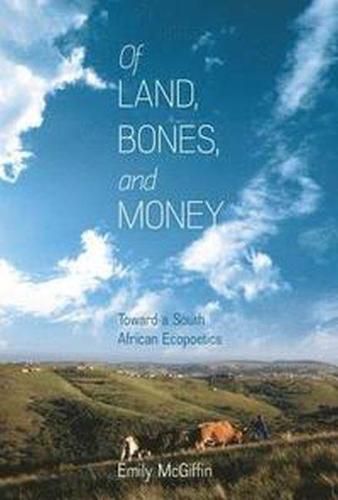Readings Newsletter
Become a Readings Member to make your shopping experience even easier.
Sign in or sign up for free!
You’re not far away from qualifying for FREE standard shipping within Australia
You’ve qualified for FREE standard shipping within Australia
The cart is loading…






This title is printed to order. This book may have been self-published. If so, we cannot guarantee the quality of the content. In the main most books will have gone through the editing process however some may not. We therefore suggest that you be aware of this before ordering this book. If in doubt check either the author or publisher’s details as we are unable to accept any returns unless they are faulty. Please contact us if you have any questions.
The South African literature of iimbongi, the oral poets of the amaXhosa people, has long shaped understandings of landscape and history and offered a forum for grappling with change. Of Land, Bones, and Money examines the shifting role of these poets in South African society and the ways in which they have helped inform responses to segregation, apartheid, the injustices of extractive capitalism, and contemporary politics in South Africa.
Emily McGiffin first discusses the history of the amaXhosa people and the environment of their homelands before moving on to the arrival of the British, who began a relentless campaign annexing land and resources in the region. Drawing on scholarship in the fields of human geography, political ecology, and postcolonial ecocriticism, she considers isiXhosa poetry in translation within its cultural, historical, and environmental contexts, investigating how these poems struggle with the arrival and expansion of the exploitation of natural resources in South Africa and the entrenchment of profoundly racist politics that the process entailed. In contemporary South Africa, iimbongi remain a respected source of knowledge and cultural identity. Their ongoing practice of producing complex, spiritually rich literature continues to have a profound social effect, contributing directly to the healing and well-being of their audiences, to political transformation, and to environmental justice.
$9.00 standard shipping within Australia
FREE standard shipping within Australia for orders over $100.00
Express & International shipping calculated at checkout
This title is printed to order. This book may have been self-published. If so, we cannot guarantee the quality of the content. In the main most books will have gone through the editing process however some may not. We therefore suggest that you be aware of this before ordering this book. If in doubt check either the author or publisher’s details as we are unable to accept any returns unless they are faulty. Please contact us if you have any questions.
The South African literature of iimbongi, the oral poets of the amaXhosa people, has long shaped understandings of landscape and history and offered a forum for grappling with change. Of Land, Bones, and Money examines the shifting role of these poets in South African society and the ways in which they have helped inform responses to segregation, apartheid, the injustices of extractive capitalism, and contemporary politics in South Africa.
Emily McGiffin first discusses the history of the amaXhosa people and the environment of their homelands before moving on to the arrival of the British, who began a relentless campaign annexing land and resources in the region. Drawing on scholarship in the fields of human geography, political ecology, and postcolonial ecocriticism, she considers isiXhosa poetry in translation within its cultural, historical, and environmental contexts, investigating how these poems struggle with the arrival and expansion of the exploitation of natural resources in South Africa and the entrenchment of profoundly racist politics that the process entailed. In contemporary South Africa, iimbongi remain a respected source of knowledge and cultural identity. Their ongoing practice of producing complex, spiritually rich literature continues to have a profound social effect, contributing directly to the healing and well-being of their audiences, to political transformation, and to environmental justice.